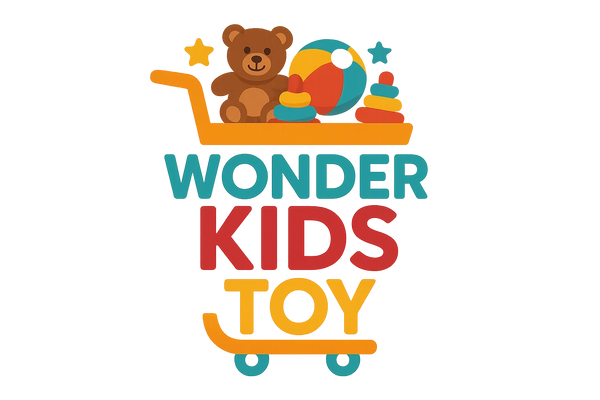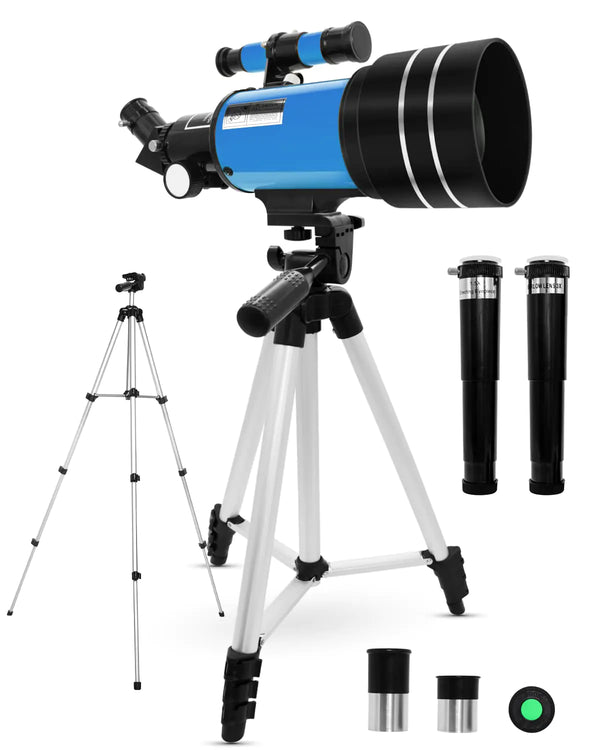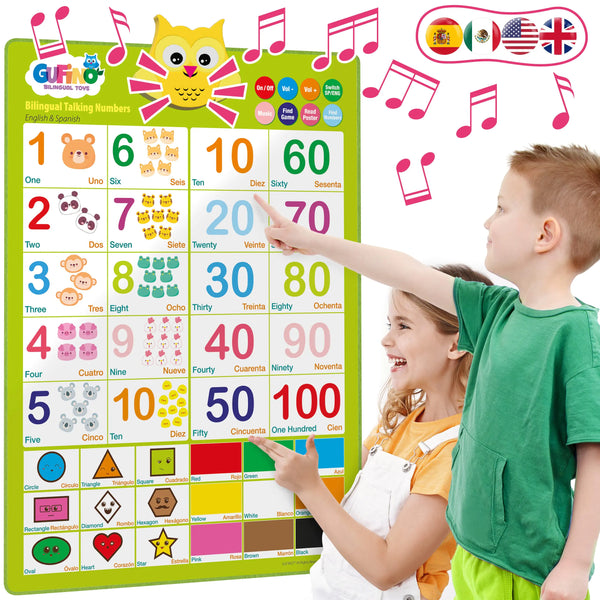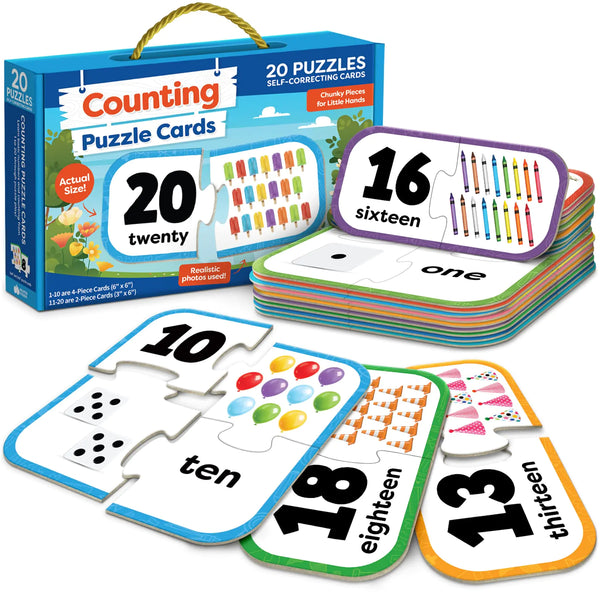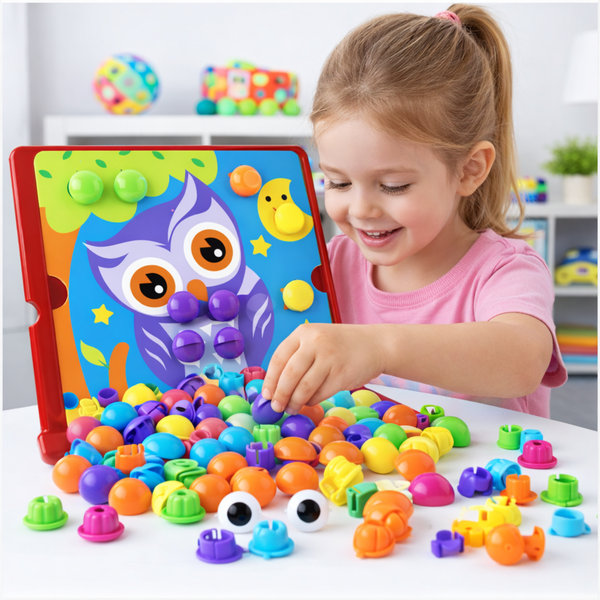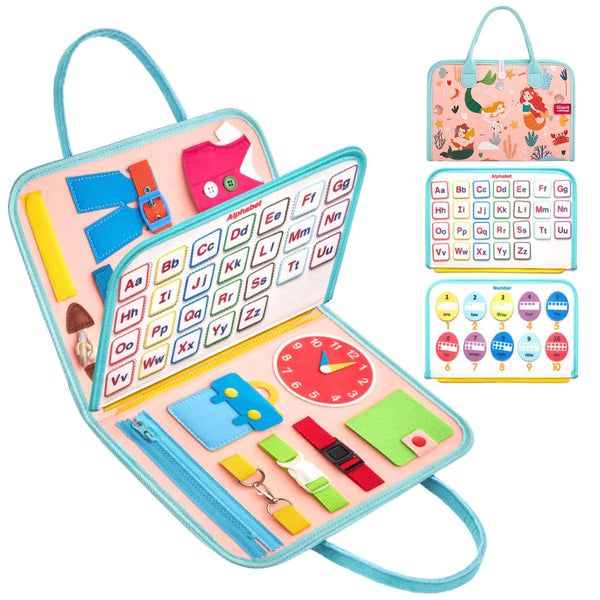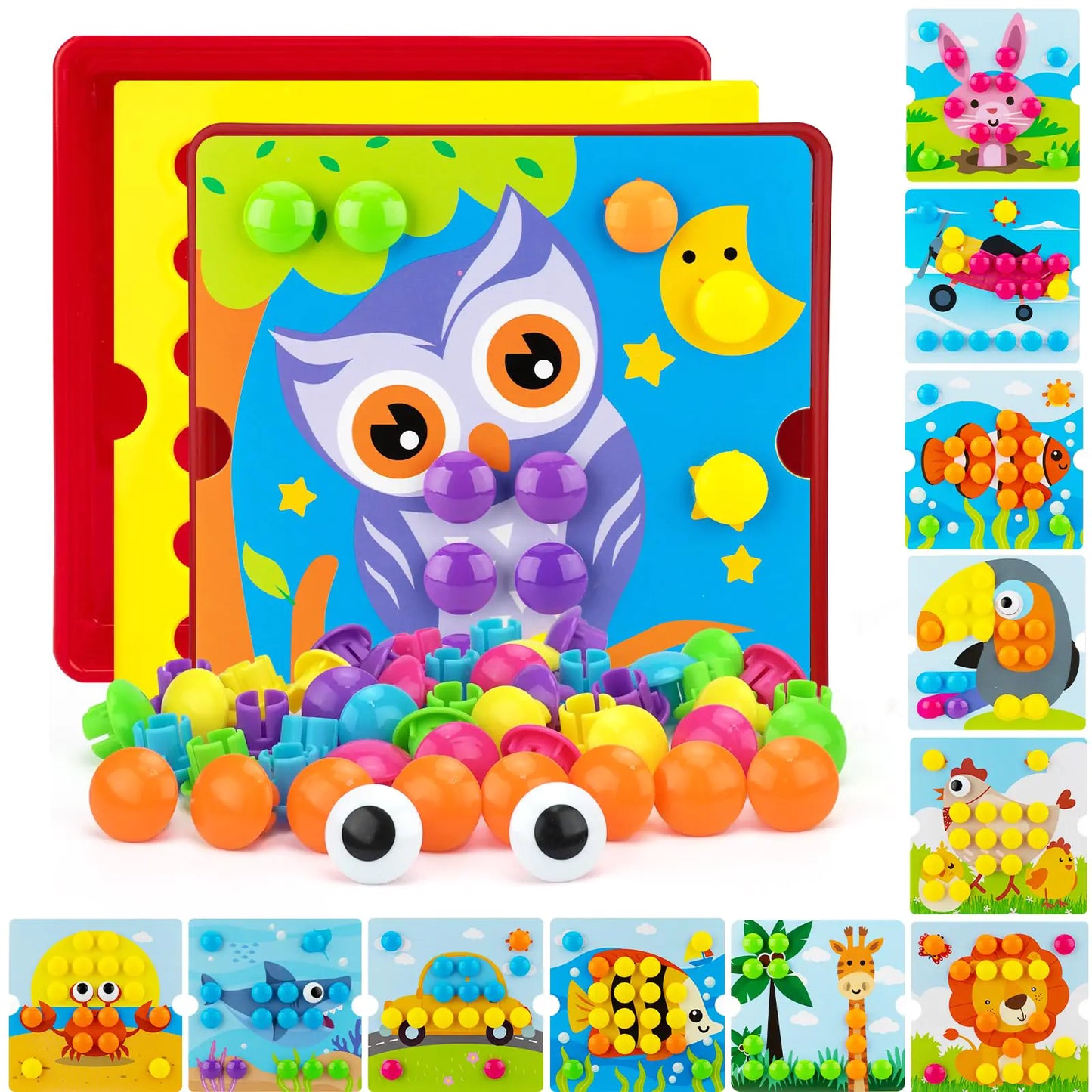Selecting the ideal toys for children is not just about entertainment; it's a critical investment in their cognitive development. The right playthings can significantly enhance a child's brain power, creativity, and problem-solving skills. This article explores various cognitive development toys specifically designed to stimulate young minds and support their intellectual growth. From building blocks that foster spatial awareness to educational games that make learning fun, each toy category offers unique benefits that contribute to a well-rounded developmental experience.
Unlocking Imagination with Creative Playthings

The Magic of Pretend Play
When I watch my kids lost in their world of pretend play, I can't help but marvel at the sheer creativity and joy it brings to their little faces. Pretend play is more than just fun—it's a crucial part of cognitive development. By imagining themselves as different characters or in various professions, children learn empathy and explore new perspectives. This kind of play nurtures emotional skills vital for relationships and self-confidence.
Pretend play allows children to create and navigate homemade stories using simple props like puppets and household items. This not only boosts their imagination but also enhances their self-regulation skills.
It's fascinating to see how these imaginative activities build self-confidence as children safely explore different perspectives. Shared pretend play forges friendships and emotional bonds essential for their well-being. And let's not forget the cognitive benefits—studies show that kids who engage in frequent pretend play have stronger self-regulation skills, such as switching between tasks.
So next time you pick out toys, remember that the best ones might not be the flashiest or the most expensive. Often, simple toys encourage pretend play and unlock a child's imagination.
Crafting Worlds with Building Blocks
Watching my kids play with building blocks, I'm always amazed at how such a simple toy can be so powerful. Building blocks are classic toys that promote cognitive development in children, allowing them to experiment and learn through play. They're not just about stacking; they're about bringing ideas to life, one block at a time.
Building blocks encourage little ones to practice structural problem-solving and understand geometry. As they stack blocks into towers and buildings, they're not just playing but learning about spatial thinking, math concepts, and physics principles. Seeing their hand-eye coordination and planning abilities grow as they test out different materials and designs is incredible.
Engaging with your children in block play can be enriching. Participate yourself, and you'll see firsthand how they talk about spatial relationships and collaborate on projects.
Here are a few tips to get the most out of block play:
- Encourage building from templates to start, then let their imagination take over.
- Foster cooperative projects to build teamwork skills.
- Engage in spatial talk to enhance their understanding of geometry and space.
Remember, fantasy is a valuable aspect of play, even with blocks. So, consider the humble building block the next time you're looking for a toy to help your child's cognitive development. It's a foundation for learning that's as fun as educational.
Role-playing with Dolls and Action Figures
I've seen firsthand how my kids' eyes light up when they dive into role-playing with their favorite dolls and action figures. It's more than just fun—it's a journey into the heart of their imagination where they learn to express and understand emotions. Toys play a vital role in emotional development, and I can vouch for the positive changes I've observed in my little ones.
Playing is a child's primary job, and they take it seriously! By stepping into different roles, they're not just having a blast but also developing empathy and social skills. Here's a quick rundown of the benefits:
- Encourages creativity and storytelling
- Enhances language and communication skills
- Fosters emotional understanding and empathy
- Promotes problem-solving and conflict resolution
When it comes to nurturing these skills, nothing beats the simplicity and power of role-play. It's a safe space where kids can explore different scenarios and outcomes, all while having the time of their lives.
So, next time you see your child deep in play, narrating a scene with their toys, remember that they're doing important work—shaping their ability to navigate the world around them.
Boosting Brain Power with Educational Games

Learning Numbers and Letters Through Fun
As a parent, I always look for toys that make learning a blast for my little ones. Educational toys focused on numbers and letters can be a game-changer, especially when designed to be both entertaining and informative. For instance, the Best Alphabet Learning Book offers a journey through the alphabet that's both engaging and educational, ensuring that adventures unfold with each page turned.
By incorporating play into learning, children absorb essential skills like recognizing letters and numbers without even realizing they're studying.
Here's a quick list of some top picks that have been a hit in our household:
- Alphabet puzzles that double as fun sorting games
- Counting books with colorful illustrations and interactive elements
- Magnetic letters that stick to the fridge for spontaneous spelling practice
And let's not forget tech toys like the INNO PAD Smart Fun Lessons, which offer a portable, interactive way to explore the alphabet, spelling, and numbers. It's incredible to see how these toys can transform learning into a joyful experience, laying the foundation for a lifetime of curiosity and knowledge.
Strategic Board Games for Young Minds
I've always been a fan of the classics, but strategic board games are a real game-changer for boosting our kids' brainpower. These games are not just about having fun but about thinking ahead, planning your next move, and adapting to new situations. It's like a workout for the brain; the benefits are impressive.
For instance, games that require critical thinking and problem-solving can impact a child's cognitive development. They learn to anticipate outcomes, weigh different strategies, and make decisions based on logic rather than impulse. And let's not forget the math skills! Some games involve managing resources or scoring points, which can subtly improve their arithmetic abilities.
When we introduce strategic board games to our children, we're not just giving them a toy; we're providing them with a tool for learning.
Moreover, these games often require patience and attention to detail, qualities that are invaluable in academic and everyday life. Here's a quick list of the skills that strategic board games can help develop in young minds:
- Strategic thinking and planning
- Problem-solving and decision-making
- Mathematical skills and number recognition
- Patience and attention to detail
- Social interaction and communication
Remember, the key is to find games that are age-appropriate and engaging. With the right match, you'll be amazed at how quickly your child's brainpower grows!
Interactive Tech Toys for Modern Learning
As a parent, I'm always looking for toys that are fun and educational. That's where interactive tech toys come into play. These modern marvels are a game-changer in children's learning. They combine play with educational content, turning learning into an adventure kids enjoy.
- Interactive Digital Pet and Case: A virtual companion that teaches responsibility and empathy.
- Flashing Cube Electronic Memory & Brain Game: Enhances memory and concentration through engaging challenges.
- Mechanical Building Sets: Develop engineering skills and spatial awareness.
These toys are more than just playthings; they're tools that help children develop critical skills while having a blast.
Moreover, interactive tech toys often introduce basic coding and problem-solving skills essential in today's digital world. By integrating fun with learning, these toys ensure that our kids are entertained and prepared for a future where technology is ubiquitous.
Fine-Tuning Motor Skills with Hands-On Toys

Shape Sorters and Puzzles for Coordination
I've always been a fan of the classics, and when it comes to giving our little ones a head start, shape sorters and puzzles are my go-to. They're not just toys but tools that lay the foundation for complex cognitive skills. By matching shapes and fitting puzzle pieces, kids do more than play; they enhance their hand-eye coordination and learn to recognize patterns.
Geometric Shape Sort and Stack Board Toy are fantastic examples. It's perfect for developing preschool learning skills like shape and color sorting, number counting, and more. Plus, it's a fun way for kids to improve their eye-hand coordination. Here's a quick list of benefits these toys offer:
- Encourages problem-solving and logical thinking
- Boosts spatial awareness and fine motor skills
- Teaches shapes, colors, and numbers in a playful setting
- Foster's patience and attention to detail
Remember, every shape sorter or puzzle piece your child grasps is a step towards greater coordination and cognitive development. It's about building those little victories that add up to a lifetime of learning.
Craft Kits for Precision and Patience
I've always found something special about watching a child's concentration as they thread a needle or place a tiny bead. Craft kits are not just about creating something beautiful; they're a playground for developing fine motor skills and patience. Crafting can be a meditative process where kids learn the value of slowing down and appreciating the details.
Italics aren't just for emphasis; they're a reminder that every stitch and brush stroke is a step towards mastery. Here's a quick list of benefits that craft kits offer:
- Enhances hand-eye coordination
- Builds focus and concentration
- Encourages following instructions
- Fosters creativity and self-expression
Crafting isn't just about the end product; it's about the journey. The quiet moments of choosing colors, cutting shapes, and assembling pieces are where the magic happens. These are the times when children learn about resilience and the satisfaction of seeing a project through to completion.
Outdoor Play for Physical and Mental Agility
I've always believed that fresh air does wonders for kids, and it turns out it's not just about getting a break from indoor chaos. Outdoor play is a powerhouse of developmental benefits, especially regarding physical and mental agility. When kids are out there running, jumping, and climbing, they're not just burning energy but also honing their motor skills, balance, and coordination.
Swing sets, sandboxes, and water play tables are more than just fun; they help children explore and understand their physical capabilities. Plus, engaging in outdoor activities is a fantastic way for kids to maintain a healthy weight and build strength. And let's not forget the cognitive perks! Open-ended play with versatile toys like balls and frisbees encourages divergent thinking and problem-solving.
Encouraging kids to play outside isn't just about keeping them busy; it's about giving them the space to grow in every sense of the word.
Whether it's a structured game of tag or a free-form backyard adventure, outdoor play is essential for a child's overall development. It's about balancing screen time with green time and ensuring our kids get the best of both worlds.
Cultivating Early Problem-Solving Abilities

Challenges and Solutions with Puzzle Games
I've always believed that a good challenge can spark the brain into action, and puzzle games are the perfect example. Jigsaw puzzles, for instance, are more than just a way to pass the time; they're a brain-boosting activity that can improve problem-solving skills and spatial awareness. From Tangram puzzles endorsed by educational experts to the classic Sudoku, these games are a fun way to enhance logical thinking and concentration.
When it comes to choosing puzzles, there's a variety to consider. Here's a quick list to help you decide:
- 300 Piece Jigsaw Puzzles for Beginners
- 1000 Piece Jigsaw Puzzles for the more determined
- 3D Puzzles for a hands-on challenge
- Puzzle Cubes for those who love twists and turns
Remember, the goal isn't just to complete the puzzle, but to enjoy the process of finding solutions and overcoming obstacles. It's about teaching our kids the value of perseverance and the joy of achieving a goal.
Interactive learning toys and puzzles enhance cognitive skills and promote essential social skills, such as turn-taking and handling competition. They're a great way to balance screen time with educational content and active play, ensuring that our kids mentally and physically develop.
Building Sets that Encourage Innovation
I've always been a fan of the classics, and when it comes to fostering creativity and innovation in kids, building sets is a no-brainer. Building blocks are the cornerstone of imaginative play, allowing children to experiment with structures and designs. It's not just about stacking pieces together; it's about envisioning possibilities and bringing them to life.
LEGO™ and MEGA Bloks™ are household names, but don't overlook the charm of simple wooden planks. They're fantastic for open-ended play, which is crucial for developing young minds. Here's a quick list of benefits that building sets offer:
- Encourages divergent, creative thinking
- Enhances spatial awareness and geometry skills
- Improves hand-eye coordination
- Teaches essential physics and engineering concepts
Remember, the goal is to stimulate interest in construction and innovation. By providing character toys and accessories, you can spark ideas for new projects and encourage even the most reluctant builder to dive in.
Whether you're eyeing the latest 25 Best Building Toys for Kids or the Top 5 Best Building Sets for 2024, rest assured that these toys are more than just playthings. They're tools that help shape the problem-solvers and innovators of tomorrow.
Toys that Teach Cause and Effect
I've always been fascinated by the way simple toys can teach complex concepts. Take, for example, the classic cause-and-effect relationship. It's a fundamental principle that children grasp early on, and toys are a brilliant way to reinforce this learning. When a child pushes a button, and a toy car zooms forward, they're not just entertained; they're learning.
- Puzzles: Fit a piece in the right spot, and the picture comes together.
- Blocks: Stack them high, and gravity takes its toll.
- Musical toys: Press a key, and a note sounds out.
Each toy offers a hands-on experience that solidifies the understanding of action and reaction. And it's not just about the physical; these toys also lay the groundwork for cognitive development. Educational toys like puzzles and blocks enhance children's mental development, problem-solving skills, and creativity. Memory games boost brainpower and social skills—musical toys aid auditory development.
It's the simple things that often make the biggest impact. By playing with toys that teach cause and effect, children learn to predict outcomes, understand consequences, and become more confident in their ability to interact with the world around them.
Enhancing Social Skills Through Cooperative Play

Board Games that Promote Teamwork
I've always believed playtime should be more than just fun and games. It's a chance for kids to learn valuable life skills, and what better way to do that than with board games that promote teamwork? These games are not just a hit at family game nights; they're also a fantastic way for kids to develop their social and critical thinking skills.
Take tower-building games, for example. They're not only a blast for the whole family but also reinforce teamwork and can even help your child brush up on their counting skills. And let's not forget about games that challenge kids to plan and organize, enhancing those all-important executive functioning skills.
Playing cooperative board games is a refreshing alternative to the competitive ones, and it's amazing to see how kids learn to work together towards a common goal.
Here's a quick list of benefits that these games offer:
- Fosters cooperation and patience
- Encourages communication and strategy
- Builds empathy and understanding
Remember, the goal isn't just to win but to engage and grow together. So, next time you want to boost your child's brain power, consider adding cooperative board games to your shopping list.
Playsets for Shared Adventures
I've seen firsthand how playsets can transform playtime into a collaborative adventure, fostering teamwork and social skills. Playsets are more than just toys; they're a gateway to shared experiences that can help kids learn to work together and solve problems. With various themes and characters, these playsets encourage children to create stories and scenarios that can be both fun and educational.
- Encourages cooperative play
- Develops communication skills
- Sparks creativity and imagination
- Teaches problem-solving and conflict resolution
These playsets offer a unique opportunity for kids to engage in imaginative play that mirrors real-life social interactions.
Remember, the goal is to provide our children with toys that entertain and contribute to their growth. Educational toys enhance cognitive, emotional, and social skills through play. They promote children's growth, learning, and development, fostering connections and sparking imagination.
Sports and Recreation for Group Dynamics
Let's talk about the power of play, especially in sports and recreation. Team sports are more than just fun and games; they're a breeding ground for essential life skills. Kids learn to work together, strategize, and support one another, all while getting a healthy dose of physical activity. It's not just about winning; it's about how they play the game.
Cooperation and communication are essential in team sports. Whether it's soccer, basketball, or a friendly game of tag, children learn to read social cues and understand the importance of teamwork. Here's a quick list of the benefits:
- Improved social skills
- Enhanced communication abilities
- Better understanding of fair play
- Development of leadership qualities
By engaging in group sports, children also learn to handle both victory and defeat with grace, building resilience and a positive mindset that will serve them well throughout life.
Remember, the goal is to foster a love for being active and to encourage kids to enjoy the camaraderie that comes with team play. So, let's lace up those sneakers and get our kids into the game!
Nurturing Curiosity with Science and Discovery Toys

Experiment Kits for Budding Scientists
As a parent, I've seen firsthand how experiment kits can spark a child's interest in the sciences. These kits are more than just toys; they're gateways to understanding the world through the lens of STEM (Science, Technology, Engineering, and Math). The best science kits for hands-on STEM fun can transform your living room into a laboratory where young minds can explore and experiment.
Experiment kits offer a blend of education and entertainment, making them a fantastic choice for birthday gifts or just to encourage everyday learning.
Here's why I think these kits are a must-have:
- They provide a practical approach to learning scientific concepts.
- Kids get to conduct experiments that enhance their critical thinking.
- It's a beautiful way to bond with your kids over shared discoveries.
Whether mixing chemicals to see colorful reactions or building simple machines, these kits lay the groundwork for a lifelong love of science. And let's not forget, they're just plain fun! Remember, the goal is to foster curiosity and a desire to learn, which these kits do wonderfully.
Nature Exploration Tools for Young Adventurers
There's something truly magical about watching a child's eyes light up with wonder as they explore the great outdoors. Nature exploration tools are more than just toys; they're gateways to a world of discovery that can ignite a lifelong passion for the environment. From bug-catching kits to binoculars, these tools encourage kids to observe and interact with the natural world, fostering curiosity and respect for our planet.
- Binoculars for bird-watching
- Magnifying glasses for examining insects
- Compasses for learning navigation
- Plant identification guides
Encouraging kids to step outside and explore isn't just about having fun; it's about planting the seeds of conservation and scientific inquiry. These hands-on experiences are invaluable, providing real-world context to the lessons they learn in school.
As a parent, I've seen firsthand how nature exploration tools can transform a simple backyard into a thrilling adventure land. My little one's collection of leaves, rocks, and memories grows with each expedition. And let's not forget, these tools are a fantastic way to get kids moving and enjoying healthy physical activity in the fresh air. So, next time you're considering a gift, think about the endless possibilities of a nature exploration kit. It invests in your child's development and our planet's future.
Interactive Globes and Maps for Geography Whizzes
I've always believed that a globe can be a window to the world for our kids, sparking their curiosity and encouraging them to explore cultures and countries far beyond their backyard. Interactive globes and maps are not just educational; they're a fun way to travel the world from home. With the latest interactive models, children can tap into a country to hear facts, learn about the climate, and even listen to stories from that region.
By incorporating play with these globes, we're not only teaching geography, we're also building a foundation for global citizenship.
Here's why I think these globes are a must-have:
- They make learning about different countries and cultures an adventure.
- Kids develop spatial awareness and understanding of the world's geography.
- Interactive features keep children engaged and eager to learn more.
One of the best I've come across is the Shifu Orboot Earth, praised for its immersive layout. Another great find is the Little Experimenter Talking Globe, specifically designed for early learning and teaching kids about countries, capitals, and much more.
Encouraging Artistic Expression with Creative Outlets

Drawing and Painting Supplies for Little Artists
As a parent, I've seen firsthand how drawing and painting can light up a child's world. It's not just about the colors and shapes they create; it's about the skills they develop along the way. Finger painting, for instance, isn't just a fun mess; it's a gateway to fine motor control and sensory exploration. And when kids get their hands on safety scissors or beads, they're not just crafting; they're honing their skill and concentration.
Drawing and painting supplies can transform into a treasure trove of learning opportunities. Here's a quick list of benefits:
- Encourages creativity and self-expression
- Develops fine motor skills
- Enhances focus and planning
- Provides a sense of achievement
Encouraging your little ones to engage in art isn't just about creating something beautiful; it's about building a foundation for future learning and development.
Whether following step-by-step craft instructions or experimenting with different materials, each activity is a stepping stone to greater confidence and capability. And let's not forget the pride they feel when their artwork finds a place on the fridge or the family gallery wall. These moments remind us of the value of simple art supplies in shaping our children's growth.
Music Instruments for Melodic Exploration
Introducing your little ones to musical instruments can be a game-changer in their cognitive development. Melodic exploration nurtures their artistic side and enhances their auditory discrimination and fine motor skills. Imagine the joy on your child's face as they discover the different sounds they can create with a simple drum beat or a guitar strum.
- Drum Sets: Develops rhythm and coordination.
- Keyboards: Encourage musical theory and pattern recognition.
- Guitars: Improves dexterity and introduces basic chord structures.
- Recorders: Teaches breath control and pitch recognition.
By incorporating music into playtime, we're not just making memories; we're laying down the foundation for a lifelong appreciation of music and the arts. It's about creating a rich sensory environment where every tune and rhythm sparks a new learning pathway.
Musical toys offer a symphony of developmental benefits, whether it's a toddler banging on a drum or a preschooler plucking a string. And let's not forget, they're a blast for the whole family. It's never too early to start the musical journey, and with the variety of instruments available, there's a perfect pitch for every child to find their groove.
Theater and Puppetry for Storytelling Skills
I've seen firsthand how theater and puppetry can unlock a child's storytelling skills. It's not just about putting on a show; it's a journey into the heart of creativity. Hand puppets, for example, are more than just toys; they're gateways to new worlds. Kids give voice to characters, crafting narratives that build language and social-emotional skills.
-
Benefits of Puppet Play:
- Encourages expressive language
- Fosters social interaction
- Stimulates imagination
- Develops storytelling abilities
By guiding a puppet, children step into the shoes of others, learning empathy and perspective. It's a playful way to explore emotions and relationships, all while having a blast.
Whether it's a simple sock puppet or a more elaborate marionette, bringing a character to life helps children understand the power of their words and actions. And let's not forget, it's a fantastic way for us to bond with our kids, sharing in the laughter and lessons that puppetry brings.
Supporting Language Development with Reading and Writing Aids

Storybooks that Spark Imagination
There's something magical about watching your child's eyes light up as they turn the pages of a storybook. It's not just about reading; it's about embarking on adventures, meeting new friends, and discovering worlds beyond their wildest dreams. Books are the keys to unlocking children's imagination, and the benefits are immense.
- 20 Must-Read Books to Ignite Your Toddler's Imagination: This list will guide you to the best books that promise to take your child on an unforgettable journey.
- 20 Best Children's Books to Stimulate Kids' Imagination - SplashLearn: Not only do these books entertain, but they also play a crucial role in developing vocabulary and creative thinking.
By integrating story-time with play, we can enhance the experience and make it even more enriching for our kids. Imagine the fun they'll have reenacting their favorite tales with their toys!
Choosing the right book can be a delightful challenge, but it comes with the reward of seeing your child grow and learn. Whether it's a classic fairy tale or a new, vibrant story, each book opens up possibilities for learning and fun.
Magnetic Letters and Whiteboards for Spelling Fun
I've always believed that learning should be as engaging as playtime, and that's precisely what magnetic letters and whiteboards bring to the table. These tools are not just toys but the building blocks of literacy. Kids can form words, practice spelling, and even create their own stories, all while developing their fine motor skills as they handle the letters.
Gamenote Classroom Magnetic Letters Kit is a standout choice for parents. It comes packed with a generous assortment of letters, ensuring that your little ones won't run out of ''s and 'A's while crafting sentences. Here's a quick look at what you get:
- 234 letters in total
- 182 lowercase letters
- 52 uppercase letters
- One double-sided magnetic writing board
The beauty of these kits is that they grow with your child. Start with simple word building and progress to more complex spelling challenges as their skills develop.
And let's not forget the fun factor. Kids love the tactile feel of foam alphabet letters, and the vibrant colors make the learning process even more enjoyable. The Gamenote Classroom Magnetic Letters Kit is not just a fantastic educational tool; it's a way to bond with your kids over learning and fun.
Language Learning Apps for Kids
In today's digital age, language learning apps are a game-changer for our little ones. I've seen firsthand how these apps turn the daunting task of learning a new language into a fun-filled adventure.
- Duolingo - Engaging and accessible, with over 40 languages.
- Teach Kids Languages - Uses fun games to teach languages.
By incorporating daily practice with these apps, children can improve their language skills significantly, laying a strong foundation for future learning.
It's not just about learning to say 'hello' in a different language; it's about opening doors to new cultures and ways of thinking. And the best part? Parents can join in the fun, making it a bonding experience that reinforces learning.
Fostering Independence with Role-Play and Dress-Up

Kitchen and Market Playsets for Life Skills
I've seen firsthand how kitchen and market playsets can be a game-changer for kids. They're not just toys but a fun way to learn valuable life skills. Kids can mimic adults in a safe, controlled environment, which is crucial for their development. They know about the organization, plan meals, and clean up after themselves.
Here's why I love these playsets for my little ones:
- They encourage responsibility by assigning tasks like 'shopping' for groceries or 'cooking' meals.
- They boost math skills through play money and price tags.
- They foster social skills as children negotiate roles and play together.
These playsets are a stepping stone to real-world tasks, making the transition to actual chores more natural and enjoyable.
And let's not forget the creativity involved! Whether it's deciding what's for dinner or setting up a storefront, these toys spark imagination and decision-making. Watching my kids grow through play is incredible, and I can't recommend these playsets enough.
Costumes and Accessories for Imaginative Play
When I see my little one donning a superhero cape or a princess tiara, it's not just adorable—it's a gateway to a world of learning. Costumes and accessories are more than just playthings; they help kids step into different roles and explore new identities and scenarios. This imaginative play is crucial for developing empathy and social skills, as it helps them understand the world from another's perspective.
Costumes from beloved franchises like Disney allow children to embody their favorite characters, enriching their play with familiar storylines and values. For instance, the Disney Pretend Play & Dress-up collection invites kids to enter the magical world of Disney, sparking joy and creativity. Meanwhile, versatile sets on Amazon, like the 5 Sets Kids Dressing up Costumes, cater to various roles, such as construction worker or doctor, encouraging a diverse range of pretend-play scenarios.
By providing a wardrobe of possibilities, we're not just dressing up our kids for fun; we're equipping them with the attire to dream, learn, and grow.
Here's a quick list of benefits that come with imaginative dress-up play:
- Fosters creativity and storytelling
- Enhances language and communication skills
- Builds confidence and self-expression
- Encourages empathy and understanding of others
So, next time you're picking out a costume for your child, remember that you're also selecting a valuable educational tool that supports their development in a playful, engaging way.
Toolsets and Workbenches for Young Builders
I've seen firsthand how a child's eyes light up when handed a toolset. It's like watching a little builder in the making, their imagination kicking into high gear as they hammer away at their latest creation. Toolsets and workbenches are more than just toys; they're a foundation for developing critical life skills.
From improving hand-eye coordination to fostering an understanding of basic mechanics, these playsets pack a punch in cognitive development. Kids learn to identify tools and their uses, which is a subtle nod to the importance of practical knowledge in everyday life. And let's not forget the sense of accomplishment they feel when they've completed a project — it's priceless!
Here's a quick list of benefits your child can gain from these toys:
- Enhanced fine motor skills
- Boosted problem-solving abilities
- A firmer grasp of spatial relationships
- Increased patience and focus
- A safe environment to mimic adult roles and responsibilities
Remember, the key is to provide a supportive space where kids can explore and learn at their own pace. Encouraging them to build and fix things, even if it's just pretend, lays the groundwork for a can-do attitude that'll serve them well in the future.
If you're searching for a high-quality set, check out the Play22 Kids Tool Set Bench 76 Pc. It's a hit with the little ones, and its electronic play drill adds to the realism. Just the thing to spark a love for building in your child!
Integrating Fun and Learning with Hybrid Toys

App-Connected Toys for Interactive Play
I've seen firsthand how app-connected toys can transform playtime into an interactive learning experience. These toys, which sync with mobile apps, provide a dynamic way to engage children in educational activities while they have fun. They bridge the gap between physical play and digital innovation, ensuring that screen time is not just passive scrolling but an active learning process.
- Smart building blocks that pair with apps to teach coding concepts.
- Augmented reality storybooks that come to life when viewed through a tablet or smartphone.
- Interactive plush toys that respond to touch and sound with the help of an app.
These toys are not just about fun; they're about creating a foundation for lifelong learning in a language that kids understand - play.
Moreover, app-connected toys often come with adjustable difficulty levels, making them suitable for a wide age range. This means your investment grows with your child, providing challenges just right for their developing brains. It's a win-win situation where playtime becomes prime time for learning.
Educational Robots that Teach Coding
I've seen firsthand how educational robots can turn the daunting task of learning to code into a playful experience. Like the popular Botley, these robots offer a hands-on approach to programming that's both engaging and educational. Botley, for instance, is a screen-free option that teaches kids the basics of coding through physical tiles and pieces that create a track for the robot to follow. It's amazing to watch kids as young as five start to grasp the concepts of sequencing and logic as they guide their robot through mazes and obstacles.
Educational robots are more than just toys; they're tools that foster critical thinking and problem-solving skills. Giving children the power to control their robotic companions teaches them the effects of their programming decisions in real time. Here's a quick rundown of the benefits:
- Encourages STEM learning
- Enhances problem-solving abilities
- Develops logical thinking and sequencing
- Provides a tangible way to understand abstract coding concepts
With these robots, kids aren't just learning to code; they're learning to think like coders. And that's a skill set that will benefit them for a lifetime.
Augmented Reality Puzzles for a New Dimension of Play
I've seen firsthand how augmented reality puzzles can transform a typical game night into an immersive adventure. These high-tech toys blend physical play with digital excitement, uniquely challenging the mind and enhancing problem-solving skills. With an AR puzzle, kids can watch their creations come to life through a tablet or smartphone, merging tactile learning with cutting-edge technology.
- Encourages spatial reasoning and cognitive development
- Fosters creativity as children imagine their puzzles in a real-world context.
- Provides an interactive experience that captivates and educates
Augmented reality puzzles are more than just a fun diversion; they're a gateway to a world where play and learning are indistinguishable.
As a parent, I always look for toys that offer educational value without skimping on fun. AR puzzles hit that sweet spot, making them a fantastic choice for kids eager to explore and learn. Plus, they're a great way to introduce children to technology in a controlled and meaningful way.
Discover the perfect blend of entertainment and education with our innovative hybrid toys! At Wonder Kids Toy Store, we offer a vast selection of multifunctional 3D puzzles that spark creativity and enhance children's cognitive skills. Dive into a world of imaginative play and hands-on learning today.
Unleashing Potential Through Play
And there you have it, folks! We've journeyed through a world of colorful blocks, brainy puzzles, and imaginative playthings, all designed to give your kiddos that extra edge in cognitive development. Remember, it's not just about the toys but the endless possibilities they unlock in those growing minds. So, whether building a skyscraper with blocks or going on a safari with stuffed animals, let's make playtime count. After all, every giggle and 'aha!' moment is a step towards a brighter, brainier future for our little ones. Keep playing, learning, and, most importantly, keep the fun alive!
What types of toys are best for cognitive development?
Toys that encourage problem-solving, creative play, and learning, such as building blocks, educational games, puzzles, and role-play sets, are excellent for cognitive development.
At what age should children start playing with educational toys?
Children can start playing with educational toys as early as infancy. Still, the first six years are crucial for cognitive development, so targeted toys for this age range are particularly beneficial.
How do toys enhance a child's brain power?
Toys enhance brain power by stimulating neural connections through play, which improves skills like memory, attention, and problem-solving, and encourages imagination and social interaction.
Are tech toys beneficial for children's cognitive development?
Yes, interactive tech toys that promote learning through play, such as educational robots or app-connected toys, can be beneficial by introducing coding, enhancing problem-solving skills, and offering interactive learning experiences.
Can playing with dolls and action figures boost cognitive skills?
Yes, dolls and action figures can boost cognitive skills by encouraging children to play pretend, which helps develop language skills, social understanding, and empathy.
What role do motor skills play in cognitive development?
Motor skills are closely linked with cognitive development. Hands-on toys that fine-tune motor skills, such as shape sorters and craft kits, also enhance coordination, patience, and problem-solving skills.
How can parents ensure their children are getting the most out of playtime?
Parents can ensure children get the most out of playtime by providing a variety of educational and developmentally appropriate toys, engaging in play with their children, and encouraging open-ended and imaginative play.
Should parents be concerned about the safety of cognitive development toys?
Safety is important. Parents should choose high-quality, durable, and safe materials, avoid small parts for young children, and follow age recommendations to ensure toys are appropriate for their child's developmental stage.

